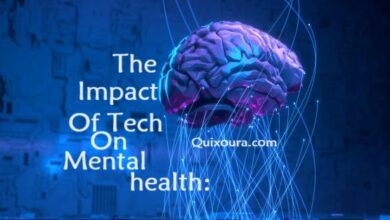
Depression, often cloaked in misconceptions and stigma, is a pervasive health concern that transcends cultures, ages, and lifestyles. It’s not merely a fleeting bout of sadness or an indication of personal weakness. Instead, depression is a complex mental health disorder that profoundly impacts an individual’s feelings, thoughts, and daily activities. This article delves into the multifaceted nature of depression, shedding light on its symptoms, causes, and treatment options, to foster understanding and empathy toward those affected.
What is Depression?
Depression is a common and serious mental health condition characterized by persistent feelings of sadness, hopelessness, and a lack of interest or pleasure in previously enjoyed activities. It’s important to recognize that depression is not a uniform experience; it varies in intensity, duration, and symptoms, affecting each person uniquely.

Symptoms of Depression
The symptoms of depression can vary widely from person to person, but here are some common signs and symptoms that individuals may experience:
Persistent Sadness or Low Mood:
This is often the most recognizable symptom. Individuals might feel down, sad, hopeless, or tearful much of the time, in a way that doesn’t go away and affects their daily life.
Loss of Interest or Pleasure:
People with depression often lose interest in activities or hobbies they once enjoyed. There’s a significant reduction in the ability to feel joy or pleasure.
Fatigue or Loss of Energy:
Feeling extremely tired all the time and having a lack of energy is common, making even the simplest tasks feel exhausting.
Changes in Appetite or Weight:
Some people experience increased appetite and weight gain, while others have less appetite and lose weight. Changes are significant and noticeable.
Sleep Disturbances:
This includes difficulties falling asleep, staying asleep (insomnia), or sleeping much more than usual (hypersomnia).
Anxiety:
Though primarily a mood disorder, depression can be accompanied by feelings of restlessness or being on edge.
Feelings of Worthlessness or Guilt:
Excessive criticism of oneself for past failures or seemingly minor mistakes is common.
Difficulty Concentrating:
This includes trouble focusing, making decisions, or remembering things.
Physical Symptoms:
Unexplained aches and pains, headaches, cramps, or digestive problems that do not ease even with treatment.

Considerations of Mortality or Self-harm:
Regular or persistent considerations of mortality, suicidal contemplation, or suicide trials are significant symptoms that demand immediate attention.
It’s crucial to acknowledge that these symptoms must be present for at least two weeks for a diagnosis of depression to be considered. The symptoms must also reflect a deviation from the individual’s previous level of functioning and result in notable distress or impairment in social, occupational, or other vital areas of functioning.
If you or someone you know is showing signs of depression, it’s important to seek help from a healthcare provider or mental health professional.
Causes and Risk Factors
Understanding the causes and risk factors can help in identifying, treating, and potentially preventing this mental health disorder. Here’s an overview:
Genetic Factors:
- Family History: It can run in families, suggesting a genetic link. Having a first-degree relative with depression increases the risk.
Biological Factors:
- Brain Chemistry Imbalance: Neurotransmitters in the brain, chemicals that transmit signals, can be involved in depression. Imbalances in substances like serotonin, norepinephrine, and dopamine may play a role.
- Hormonal Changes: Changes in hormone levels, due to thyroid problems, menopause, childbirth, or other health conditions, can trigger depression.
Psychological Factors:
-
Characteristics of Personality: Individuals exhibiting certain personality traits, including low self-esteem, excessive dependency, self-criticism, or pessimism, are at a higher risk of developing depression.
- Traumatic or Stressful Events: Experiences like abuse, financial problems, the death of a loved one, or a difficult relationship can trigger depression.
Environmental Factors:
- Chronic Stress: Ongoing stress at home, work, or school can contribute to the development of depression.
- Exposure to Violence or Neglect: Early life challenges, including trauma, abuse, or neglect, can increase depression risk.
Social Factors:
-
Social Isolation: The absence of social support or feelings of isolation may elevate the likelihood of experiencing depression.
-
Major Life Changes: Events like moving, changing jobs, or graduating can be stressful and trigger depression.

Health-Related Factors:
- Chronic Illnesses: Conditions like diabetes, cancer, heart disease, or Parkinson’s disease can increase the risk of depression.
- Substance Use: Abuse of alcohol, recreational drugs, and even some prescription medications can lead to or exacerbate depression.
Psychological Disorders:
- Co-occurring Disorders: Anxiety, post-traumatic stress disorder (PTSD), and eating disorders often co-occur with depression, affecting its onset and severity.
Diagnosing Depression
A healthcare provider can diagnose depression through a comprehensive evaluation that includes a physical exam, interview, and lab tests. The Diagnostic and Statistical Manual of Mental Disorders (DSM-5) provides criteria for diagnosing major depressive disorder, which is often used as a guideline.
Treatment and Management
The treatment and management of it are multifaceted, often involving a combination of strategies tailored to the individual’s needs. Effective treatment typically improves the quality of life significantly. Here’s an overview of the primary approaches:
1. Psychotherapy:
- Cognitive-Behavioral Therapy (CBT): This therapy helps patients identify and change negative thought patterns and behaviors that contribute to depression.
- Interpersonal Therapy (IPT): IPT focuses on improving troubled personal relationships and communication that may contribute to depression.
- Psychodynamic Therapy: This explores how unresolved, unconscious conflicts from the past affect current behavior and feelings.
- Group Therapy: Offers a platform to share experiences and learn from others in a supportive environment.
2. Medications:
- Antidepressants: These medications can help correct imbalances in brain chemistry. Common types include SSRIs, SNRIs, tricyclic antidepressants, and MAOIs.
- Mood Stabilizers and Antipsychotics: In some cases, particularly for severe or treatment-resistant depression, these medications may be prescribed.
3. Lifestyle Changes:
- Regular Exercise: Physical activity can boost mood and mental health by releasing endorphins and reducing stress.
- Nutrition: A balanced diet can impact brain health and mood. Some studies suggest that foods rich in omega-3 fatty acids, folic acid, and antioxidants can be beneficial.
- Sleep Hygiene: Improving sleep patterns can significantly impact depression. This includes establishing a routine, minimizing screen time before bed, and creating a comfortable sleep environment.

4. Brain Stimulation Therapies:
- Electroconvulsive Therapy (ECT): For severe depression or when other treatments have failed, ECT can be effective, using electrical currents to induce controlled seizures in the brain.
- Transcranial Magnetic Stimulation (TMS):
A non-invasive technique employing magnetic fields to activate nerve cells in the brain, aiming to alleviate symptoms of it.
5. Self-help and Coping Strategies:
- Mindfulness and Relaxation Techniques: Practices like meditation, yoga, and deep-breathing exercises can reduce stress and enhance well-being.
- Support Groups: Sharing experiences with others facing similar challenges can provide comfort and insights into managing depression
The Path Forward
Understanding and treating depression requires a holistic approach that acknowledges the individual’s unique experiences and challenges. If you or someone you are acquainted with is grappling with it, it is imperative to seek assistance from a qualified professional. With the right support and treatment, overcoming depression is possible, paving the way for a brighter, more hopeful future.
It is a journey through the shadows, but it’s important to remember that with help, resilience, and understanding, individuals can reach the light at the end of the tunnel, rediscovering joy and fulfillment in their lives.





